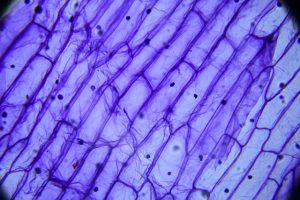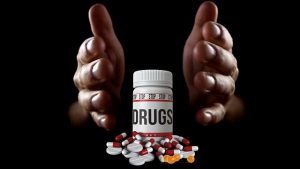CBT-Enhanced Drug Rehab: A Comprehensive Guide to Therapy in New Jersey Rehabilitation Centers
1. Cognitive Behavioral Therapy (CBT) is a key evidence-based treatment in New Jersey's drug rehab programs, helping patients change negative thought patterns linked to substance use disorders. It enhances recovery by providing personalized strategie…….

1. Cognitive Behavioral Therapy (CBT) is a key evidence-based treatment in New Jersey's drug rehab programs, helping patients change negative thought patterns linked to substance use disorders. It enhances recovery by providing personalized strategies for self-esteem and resilience improvement, trigger identification, impulse control, stress management, and maintaining sobriety.
2. The integration of CBT in New Jersey's rehab centers has led to improved outcomes for individuals recovering from addiction, with a focus on addressing the psychological aspects of substance abuse. These centers offer tailored treatment plans that blend individual and group therapies, emphasizing skills for coping with triggers and preventing relapse.
3. CBT is a staple in New Jersey's drug rehab facilities due to its effectiveness in treating substance use disorders. Certified therapists specialize in CBT, helping patients transform negative thought patterns into positive ones, which are essential for managing stressors and cravings without relying on substances.
4. Successful recovery from addiction is supported by the structured format of CBT within New Jersey's drug rehab programs, complementing individualized therapy, group support, and relapse prevention education to promote sustained sobriety. The proficiency of CBT practitioners in these centers empowers patients with lasting skills for a successful recovery journey.
5. Patients seeking drug rehab in New Jersey should consider the financial aspects, as many insurance plans cover CBT-integrated treatments. Rehab centers assist with navigating insurance and offer various financing options to ensure that comprehensive addiction treatment is accessible to all individuals in need.
1. Cognitive Behavioral Therapy (CBT) has emerged as a key component in enhancing drug rehab programs in New Jersey, offering strategies to address substance use disorders.
2. The integration of CBT into NJ’s drug rehab centers provides a structured approach that complements recovery by changing patterns of thought and behavior linked to addiction.
3. This article explores the benefits of integrating CBT within drug rehab facilities across New Jersey, highlighting approaches and the critical role of certified therapists in this process.
4. Through a series of case studies, it illustrates how individuals have successfully navigated their recovery journey with the aid of CBT in New Jersey’s rehabilitation settings.
5. Additionally, the article addresses practical considerations for accessing CBT-inclusive drug rehab treatment, including insurance and cost implications, to assist those seeking help in this regard.
- How Cognitive Behavioral Therapy (CBT) Enhances Drug Rehab Programs in New Jersey
- Understanding the Integration of CBT into Drug Rehab Centers in NJ: Benefits and Approaches
- The Role of Certified Therapists in Applying CBT Techniques Within NJ's Drug Rehab Facilities
- Success Stories: Overcoming Addiction with Cognitive Behavioral Therapy in New Jersey Rehabs
- Navigating Insurance and Costs for CBT-Included Drug Rehab Treatment in New Jersey
How Cognitive Behavioral Therapy (CBT) Enhances Drug Rehab Programs in New Jersey

Cognitive Behavioral Therapy, or CBT, plays a pivotal role in enhancing drug rehab programs across New Jersey. This form of therapy is grounded in the concept that altering negative thought patterns and behaviors can lead to positive changes, particularly for those struggling with substance use disorders. Incorporating CBT into drug rehab programs in NJ provides patients with a structured approach to recognize and challenge their destructive patterns of thinking. By doing so, individuals learn to shift their focus from self-defeating thoughts to more constructive coping strategies. This shift often leads to improved self-esteem and resilience, which are crucial for sustained recovery.
Furthermore, CBT’s practical nature makes it highly adaptable to the needs of each patient within the drug rehab New Jersey facilities. It equips patients with the tools to identify triggers that may lead to substance use and develop personalized strategies to manage these triggers effectively. The evidence-based techniques employed in CBT, such as cognitive restructuring and problem-solving skills training, are instrumental in helping individuals navigate the complex journey of recovery. As a result, patients often report greater control over their impulses, better management of stress, and an enhanced ability to maintain abstinence from drugs, contributing to more successful long-term outcomes in drug rehab New Jersey programs.
Understanding the Integration of CBT into Drug Rehab Centers in NJ: Benefits and Approaches

In New Jersey, the integration of Cognitive Behavioral Therapy (CBT) into drug rehab centers has emerged as a cornerstone approach to aid individuals in their recovery journey. This evidence-based treatment modality is tailored to help patients recognize and reframe negative thought patterns that often underlie substance use disorders. By identifying the triggers and cognitive distortions that contribute to addiction, CBT empowers clients with coping strategies and problem-solving skills to manage cravings and avoid relapse. The drug rehab centers in New Jersey that incorporate CBT into their programs offer a structured and personalized treatment plan, which includes a combination of individual and group therapies. This approach enables patients to understand the psychological aspects of their addiction and equips them with tools to maintain sobriety after completing the rehabilitation program. The benefits of integrating CBT within drug rehab New Jersey are manifold, including improved self-esteem, better emotional regulation, and a reduction in stress levels, all of which are critical for sustained recovery. Additionally, these centers often employ licensed therapists who are trained in both CBT techniques and the specific challenges associated with substance abuse, ensuring a comprehensive and effective treatment experience. The collaboration between mental health professionals and addiction specialists within these centers creates a supportive environment where patients can confront the underlying issues of their addiction and work towards long-term recovery.
The Role of Certified Therapists in Applying CBT Techniques Within NJ's Drug Rehab Facilities

New Jersey’s drug rehab facilities are at the forefront of providing effective, evidence-based treatments for individuals struggling with substance use disorders. Certified therapists play a pivotal role in these centers by applying cognitive behavioral therapy (CBT) techniques to address the underlying thought patterns and behaviors that contribute to addiction. These trained professionals tailor CBT interventions to help clients recognize and alter negative thought processes, thereby reducing cravings for drugs and improving their ability to cope with stressors and triggers without resorting to substance use. The structured nature of CBT aligns well with the regimen of a rehab environment, where patients are guided through cognitive restructuring exercises that challenge maladaptive beliefs and promote healthier, more adaptive responses. This approach is particularly effective in drug rehab New Jersey settings, where the combination of individual therapy sessions, group therapy, and relapse prevention strategies offers a comprehensive treatment plan aimed at long-term recovery and sustained sobriety. The expertise of certified CBT therapists in these facilities is instrumental in equipping patients with the tools they need to navigate their journey towards healing and reclaim their lives from the grip of addiction.
Success Stories: Overcoming Addiction with Cognitive Behavioral Therapy in New Jersey Rehabs

Individuals grappling with substance abuse in New Jersey have access to a range of effective treatments, among which cognitive behavioral therapy (CBT) stands out for its proven efficacy. At various drug rehab centers across the state, CBT is integrated into personalized recovery plans, empowering patients to identify and alter negative thought patterns that contribute to addiction. Success stories from these rehabs are abundant, showcasing individuals who have successfully navigated the path to sobriety through this cognitive-based approach. One such patient shared their journey, recounting how CBT provided them with the tools to reframe their thought processes and develop healthier coping mechanisms, ultimately leading to a life free from the grip of addiction. The interventions led by skilled therapists in New Jersey’s rehab facilities not only address the immediate challenge but also equip patients with long-term strategies for maintaining recovery, underscoring the transformative impact of CBT in drug rehab centers within the state.
Navigating Insurance and Costs for CBT-Included Drug Rehab Treatment in New Jersey

When considering cognitive behavioral therapy (CBT) as part of a comprehensive drug rehab program in New Jersey, understanding the associated costs and insurance coverage is paramount for individuals seeking treatment. Navigating the complexities of health insurance plans can be daunting; however, many rehab centers in New Jersey work closely with patients to determine their insurance benefits. Insurance policies often cover a portion of CBT-included drug rehab treatments, which can significantly reduce out-of-pocket expenses. It’s essential for individuals to verify their specific insurance plan details, as coverage varies. Rehabs accustomed to working with a range of insurers will guide patients through this process, ensuring that they receive the full extent of benefits available to them. Additionally, these facilities may offer financing options or payment plans to help manage any remaining costs, making CBT-included drug rehab treatment more accessible. By partnering with insurance providers and offering flexible financial solutions, New Jersey’s drug rehab centers aim to remove barriers to effective addiction treatment that incorporates evidence-based practices like CBT.
In conclusion, cognitive behavioral therapy has significantly enhanced drug rehab programs across New Jersey by providing individuals with the tools and strategies necessary for sustainable recovery. The integration of CBT into these centers not only addresses the psychological aspects of addiction but also empowers patients to modify their thought patterns and behaviors associated with substance use. The dedication of certified therapists in applying CBT techniques further underscores the effectiveness of this approach within the state’s drug rehab facilities. Success stories abound, illustrating the transformative power of CBT in overcoming addiction, and the navigable pathways for insurance and cost options ensure that this evidence-based treatment is accessible to those in need. For those seeking recovery from drug addiction, New Jersey’s rehab centers equipped with CBT represent a beacon of hope on the journey to wellness.









